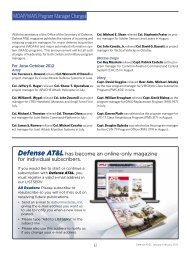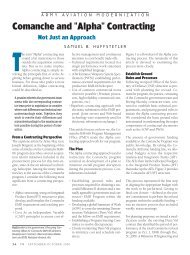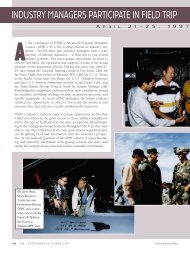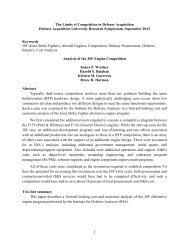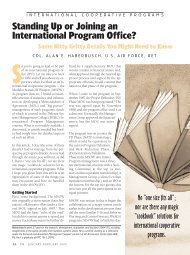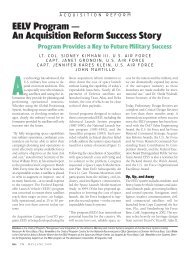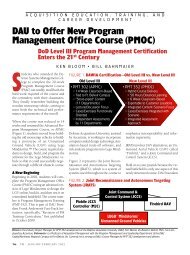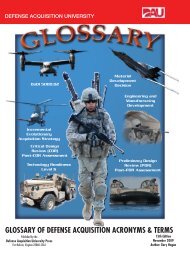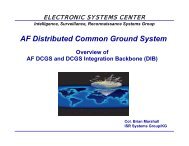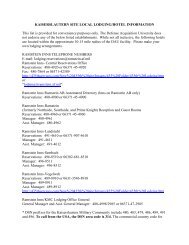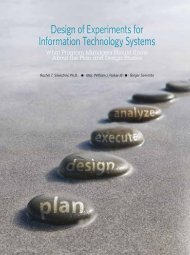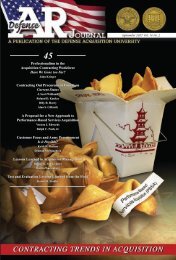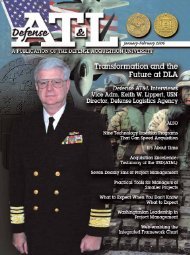Defense ARJ - Defense Acquisition University
Defense ARJ - Defense Acquisition University
Defense ARJ - Defense Acquisition University
Create successful ePaper yourself
Turn your PDF publications into a flip-book with our unique Google optimized e-Paper software.
PPBe: a reD or a Blue Pill?<br />
COE. As with educating, training should stress more individual and group learning<br />
and shared sensemaking under realistic and interactive, free-playing scenarios, and<br />
less with scripted exercises. The process is continuous and is neither episodic nor<br />
curtailed during the sensemaking process. Emphasize less the determinism associated<br />
with the task, condition, and standard model of success (Roper & Vandergriff,<br />
2005). The notion of success comes instead from valuing bricolage, or the concept<br />
of emphasizing resilience through the creative use of existing capabilities by forming<br />
Recognition that tasks, conditions, and standards are<br />
all in constant flux conveys a mental model more closely<br />
resembling the demands of the COE.<br />
new ways to accomplish things as the individual or group learns. Recognition that<br />
tasks, conditions, and standards are all in constant flux conveys a mental model more<br />
closely resembling the demands of the COE. For example, the metaphor for operations<br />
and training should move away from the expectation of proper “orchestration”<br />
associated with the heuristics of PPBE to the welcome surprises of “jazz” associated<br />
with network fluidity, impromptu leadership, and improvisation. More concisely,<br />
professionals train and educate for uncertainty and value entrepreneurial invention<br />
(Weick, 1998).<br />
DeVeloP-inG<br />
A professional–client transformed shared sensemaking should be oriented on executing<br />
budgets while exploring ill-defined, intractable issues with an acknowledgement<br />
of the existence of wicked problems. In the COE context, executing budgets<br />
must be viewed as a continuous and collaborative sensemaking process rather than<br />
an episodic output of a top-down planning, programming, and budgeting control<br />
process with the accompanying over-valued Cartesian quest for prediction. The plan<br />
for allocating resources should become a plan-to-learn model under normal conditions<br />
of surprise and uncertainty rather than a plan-to-know process based on a myth<br />
of creating certainty and top-down control (Michael, 1997). Department of <strong>Defense</strong><br />
resource management professionals must serve as the antitheses of the “self-serving<br />
elite who put science-based technique” as their masquerade of extraordinary<br />
knowledge (Schön, 1983, p. 340). They learn to treat their leaders as clients with<br />
whom they must have open and honest dialogue to develop sensemaking bridges to<br />
the COE. Through this partnering for the purpose of developing shared sensemaking,<br />
the façade of technical rationality is removed. The dialogue may lead to a political<br />
acceptance of significantly less orientation on the performance-based government<br />
1 6 3



